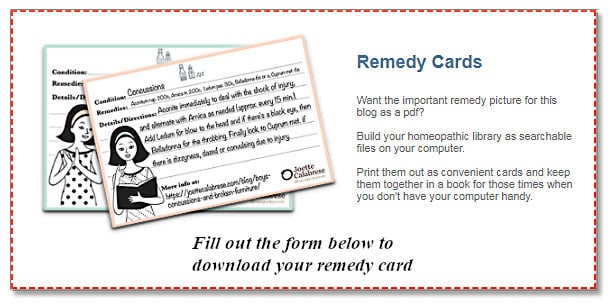This week marks a very “American” week.
On Friday, November 11, we celebrate Veterans Day — honoring men and women who served, fought and sacrificed to protect our rights. Because of their bravery, we are free to participate this week in one of our greatest American privileges, voting. (Election Day is Tuesday, November 8.)
So, to the veterans among us, my entire team and I say thank you!
Veterans have sacrificed in countless ways, but some have paid the incredible price of losing limbs to gunshots, bombs, shells and IEDs (Improvised Explosive Devices). Losing a limb should have been a high enough price to pay, but some amputees also experience the added agony of phantom pain in their missing limbs.
Specific triggers, such as a weather event or even the anniversary of the injury, can worsen the pain. The sufferer generally feels helpless. Sadly, despite the reality of the pain, there is no longer an existing limb to manipulate or massage to alleviate it. Conventional medicine offers little, if any, assistance. Even the Mayo Clinic website says, “Finding a treatment to relieve your phantom pain can be difficult.”
However, I’ve dealt with this devastating condition in my practice. Homeopathy — as it always does — offers hope where other paradigms fail. (Perhaps, we should call it “hopeopathy!”)
If you’ve been following me for any length of time, you may already be contemplating a remedy. If you guessed Hypericum perforatum 200, congratulations! You’re learning!
Indeed, Hypericum is a capital choice for nerve pain. However, for the unique condition of phantom pain, Hypericum would be my second choice.
Why? Well, because homeopaths through the ages have recorded their successes and a quick glance in our repertory (Dr. Robin Murphy’s “MetaRepertory,” Fourth Edition) guides us to an even more effective homeopathic medicine. But right there on page 2082, under “AMPUTATION, pain, phantom,” we see that in addition to Hypericum, Calendula officinalis is written in all capitals, bolded and underlined, indicating that it’s an even more highly noteworthy medicine.
So, with Calendula highly emphasized as the primary medicine for phantom pain in amputees, who am I to argue? I've made the mistake of counting on Hypericum alone when the better choice was instead Calendula officinalis 200, twice daily, until the pain is very much relieved.
My friends, do you see how we do this? We don’t reinvent the wheel at every opportunity. No, we stand on the shoulders of the homeopaths who came before us. Their collective clinical experience and wisdom are right there in the repertory. So, whenever we do not possess a protocol for a specific condition, we refer to the repertory!
And let’s say there are multiple medicines listed that could fit the bill. Then we open our materia medicas to read about the nuances of each suggested remedy to inform our choice better.
However, by utilizing capitals, bold font, and underlining, Dr. Robin Murphy did everything in this case but circle Calendula in red and put arrows and stars beside it! So, Calendula is a most prudent place to start. I have certainly seen success with it in my practice. But I'll admit that it wasn't until I'd witnessed a few of these situations that it became super clear to me.
Now, because of the upcoming day of remembrance, I have focused this blog post on sufferers who are veterans. But phantom pain can affect amputees from various parts of the population. For instance, individuals with diabetes or circulatory issues can also eventually lose limbs, often leading to this very same torment.
However, Practical Homeopathy® is not limited by the “why” behind the condition. Instead, we deal with the diagnosis. Phantom pain is phantom pain, whether the missing limb results from war, accident or health complications. And I might add that a good diagnosis from an M.D. is a valuable piece to the puzzle.
Before I close, let me thank you again, Veterans. We appreciate your sacrifices — from great to small. You stood in front of us to protect us. This week, we stand beside you in support.
My dear reader, if you know someone — veteran or civilian — who could use this information, as always, I encourage you to pass on the good news of homeopathy!
Warmly,
P.S. Have you ever wondered what you’re missing by not participating in a Gateway to Homeopathy study group? Let me tell you, you’re missing a LOT! Over 15,000 mothers and others — just like you — have joined our study groups.
That’s a lot of people honing their homeopathy skills, meeting other like-minded people and having fun doing it. I began my journey into homeopathy via a study group. So, I can guarantee you will never regret creating or joining one yourself.
But allow me to let you in on a little secret: your study group companions will assist you in much more than just homeopathy. You’ll make lifelong friends with whom you can confide and share information.
So, start on the path of finding your new best friends on my dedicated Facebook page: Joette’s Study Group: Find Your New Study Group Friends.






This post could not have come at a better time! I had nerve “amputation” done a couple years ago for a condition called MALS. My celiac plexus was removed and I have had off and on phantom nerve pain since. Hypericum does help, but I had not considered Calendula. Can’t wait to try it! Thank you so much for all you do!
This isn’t a discussion of surgical pain, nor is it a discussion about soft tissue pain; it’s specific for phantom pain of limbs.
Having said this, if you find that a homeopathic medicine acts, I wouldn’t veer from it.
Fabulous news! I have always presumed you simply use Calendula in the MT. Now I see it has other uses. So incredible
Hello Joette
I’d be curious if you have had any breast mastectomy patients describe their pain as phantom pain? I’ve had a mastectomy and implant, implant replacement, then explant after 11 years of pain. All the surgery and nerve damage often feels like my breast still hurts. I will try this regimen. Thanks for your work
This isn’t a discussion of surgical pain, nor is it a discussion about soft tissue pain; it’s specific for phantom pain of limbs.
There’s a difference between pain from surgery or injury and phantom pain after a limb has been amputated.
I urge you to consider checking out my online course titled Feminopathy.
You’ll find it here http://joetteslearningcenter.com/
I visited my brother in law after his amputation from an accident and since I didn’t have my kit with me went to the local health food store to pick up arnica, hypericum. The man behind the counter was from India and was a medic in the army there. He recommended Staphasagria and ignatia to add to the mix as they grieve for their limb and get angry over its loss as well. He was very knowledgeable and was glad I ran into him. I thank you for all you give us in knowledge as well.
How wonderful to have met up with this man.
Chris, would you be so kind as to provide the protocol for the Staphasagria and ignatia as my amputated son from 24 years ago still grieves from the lost of his limb at age 16. I intend to share with him the use of Calendula as his phantom pains still bring him to tears.